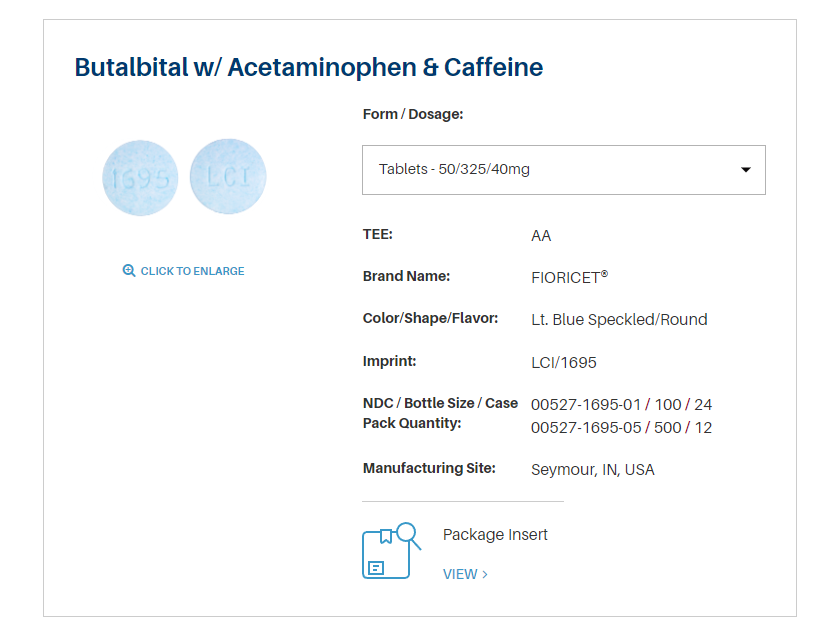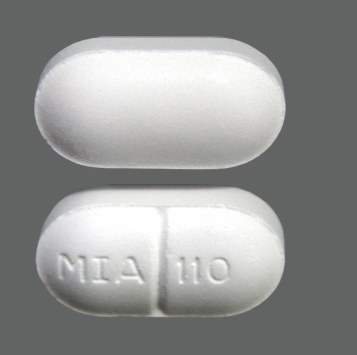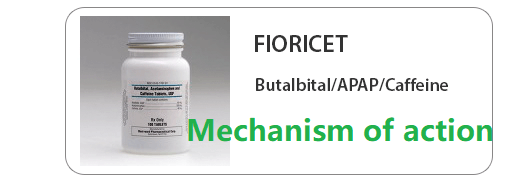Buy Blue and White Fioricet Online
| Product Name | Price | Shipping | Total | Order |
| Generic Fioricet (Butalbital APAP Caffeine ) – 180 Tabs – 90 Tabs | $179 | free | $179 | Order |
| Generic Fioricet (Butalbital APAP Caffeine ) – 180 Tabs – 120 Tabs | $219 | free | $219 | Order |
| Generic Fioricet (Butalbital APAP Caffeine ) – 180 Tabs | $239 | free | $239 | Order |
| Generic Fioricet (Butalbital APAP Caffeine ) (White)- 180 Tabs | $249 | free | $249 | Order |
| Generic Fioricet (Butalbital APAP Caffeine ) (Blue)- 180 Tabs | $249 | free | $249 | Order |
Welcome to efioricet.com, your trusted source of prescription medications. efioricet.com only employs highly qualified pharmacists and us licensed doctors. As you know, all US licensed pharmacists dare not send you prescriptions without valid US doctors’ prescriptions, besides, they can not send you prescriptions without the lawyer’s suggestion.
We all know DEA list fioricet (Butalbital, Acetaminophen, caffeine ) as Exempt Prescription and not controlled substance. The Blue guarantee Fioricet Generic sent you will be following :

Fioricet is the best headache reliever. By patient experience, it is valid for tension headache, migraine, cluster headache, and all kinds of headaches. Gabapentin is very good for nerve pain of diabet patients, if you want to know more gabapentin online information, please click here.
We have listed the detail Fioricet information, please check presentation version fioricet or pdf version of Fioricet.
What you should know when you buy Blue Fioricet Online
Your first Fioricet or Gabapentin prescription must be approved by your local doctor. Our online doctors can approve your prescription too but our doctors’ decisions are based on your health conditions your provided to us. You must complete the health conditions very honestly.
Some patients are not allowed to buy fioricet online in our network.
-
- You have porphyria;
- You have recently used alcohol;
- You have recently used sedatives, tranquilizers, or other narcotic medications;
- You have taken a MAO inhibitor in the past 14 days because A dangerous drug interaction could occur;
- You have liver , heart disease, kidney disease;
- You have a history of alcoholism or drug addiction;
- You have asthma, sleep apnea, or other breathing disorder;
- You have stomach ulcer or bleeding;
- You have a history of skin rash caused by any medication;
- You have a history of mental illness or suicidal thoughts;
- You use medicine to prevent blood clots;
- You are pregnant because your baby could become dependent on the drug;
- You are now breast feeding because Fioricet can pass into breast milk and may harm a nursing baby.
- You have been blacklisted by US
When you are not allowed to buy fioricet online does not mean you can not take fioricet, you must go to your local doctors and local pharmacies to get your prescription. You need your doctors and pharmacists to check you face to face.
Fioricet Precautions
Do not use Fioricet if you have taken an MAO inhibitor in the past 14 days. A dangerous drug interaction could occur. MAO inhibitors include isocarboxazid, linezolid, phenelzine, rasagiline, selegiline, and tranylcypromine.

You should not use Fioricet if you are allergic to acetaminophen, butalbital, or caffeine, if you have porphyria, or if you have recently used alcohol, sedatives, tranquilizers, or other narcotic medications.
To make sure Fioricet is safe for you, tell your doctor if you have:
-
- liver disease, cirrhosis, a history of alcoholism or drug addiction, or if you drink more than 3 alcoholic beverages per day;
- kidney disease;
- asthma, sleep apnea, or other breathing disorder;
- stomach ulcer or bleeding;
- a history of skin rash caused by any medication;
- a history of mental illness or suicidal thoughts; or
- if you use medicine to prevent blood clots.
It is not known whether Fioricet will harm an unborn baby. If you use butalbital while you are pregnant, your baby could become dependent on the drug. This can cause life-threatening withdrawal symptoms in the baby after it is born. Babies born dependent on habit-forming medicine may need medical treatment for several weeks. Tell your doctor if you are pregnant or plan to become pregnant.
Pregnancy Category C
Animal reproduction studies have not been conducted with this combination product. It is also not known whether butalbital, acetaminophen and caffeine can cause fetal harm when administered to a pregnant woman or can affect reproduction capacity. This product should be given to a pregnant woman only when clearly needed.
Nonteratogenic Effects
Withdrawal seizures were reported in a two-day-old male infant whose mother had taken a butalbitalcontaining drug during the last two months of pregnancy. Butalbital was found in the infant’s serum. The infant was given phenobarbital 5 mg/kg, which was tapered without further seizure or other withdrawal symptoms.
Nursing Mothers
Caffeine, barbiturates and acetaminophen are excreted in breast milk in small amounts, but the significance of their effects on nursing infants is not known. Because of potential for serious adverse reactions in nursing infants from butalbital, acetaminophen and caffeine, a decision should be made whether to discontinue nursing or to discontinue the drug, taking into account the importance of the drug to the mother.
Fioricet is a combination medication of butalbital apap caffeine commonly used to treat tension headaches but doctors also recommend it for recurring migraines.
Fioricet is a combination medication commonly used to treat tension headaches but doctors also recommend it for recurring migraines.
Acetaminophen is used to decrease the pain associated with muscular tension and caffeine increases the efficiency of the pain-killing effect.
The last constituent of Fioricet is butalbital, a powerful sedative having the property to reduce anxiety and induce relaxation. This barbiturate is also responsible for the sleepiness appearing after Fioricet intake. Fioricet is available as tablets for oral administration, to be taken whole, by mouth, with or without food.
What is the dosage of Fioricet and how to take it?
The recommended dosage is of 1-2 tablets every 4 hours or as the doctor prescribes. Fioricet treatments can cause nausea and this is why most patients prefer to take this medication without food. Talking to the doctor about the nausea problem could lead to finding out essential information on how to reduce this unwanted effect. In fact, he/she can prescribe antihistamines for the nausea but there is also the possibility of lying down one hour after taking the medication.
The dosage for Fioricet is adapted according to each patient and the medical condition.
Throughout the entire period of the treatment, the doctor will monitor constantly the progress of the patient and the general response to the administration of the drug.
Fioricet is available as tablets for oral administration, to be taken whole, by mouth, with or without food.
When to Take Fioricet ?
One of the side-effects caused by Fioricet is drowsiness. There are a lot of patients who report to the doctor complaining of day-time somnolence and in many cases the dosage of Fioricet is lowered. By going to the doctor, you can find out all there is to be known about Fioricet. You will be instructed to take it as soon as the first symptoms of tension headaches appear.
Fioricet is prescribed with extreme caution and medical specialists advise against using this medication for prolonged periods of time and in high doses.
It may cause dependence and severe withdrawal symptoms if the treatment is stopped of all a sudden. These symptoms are extremely varied, including flu-like symptoms with running nose and watery eyes.
How to Prevent Withdrawal Syndromes ?
It may cause dependence and severe withdrawal symptoms if the treatment is stopped of all a sudden. These symptoms are extremely varied, including flu-like symptoms with running nose and watery eyes.
At the same time, there are patients who experience more serious symptoms with abnormal behavior, mental confusion and seizures.
The best thing to prevent withdrawal syndromes is to ask your doctor to reduce the dosage gradually.
You can also ask about the addiction potential presented by Fioricet and you will certainly be informed that this medication should not be taken in larger quantities or more frequently than indicated. Regular checkups are a must when you follow a treatment with Fioricet.
Talk to your doctor if you have started to use more than the usual dosage, if you notice the headaches to have become worse or if they appear often. Only a healthcare professional can decide if you need dosage adjustment or special tests performed in order to determine the cause of your headaches. Never try to solve these problems by yourself and do not believe the higher doses of this medication will do the trick.
What is the Damage of Acetaminophen ?
In high doses, acetaminophen can do permanent damage to the liver and an overdose can even lead to death. The important thing to remember is that acetaminophen overdose symptoms take usually two days to appear. The condition is extremely urgent and must be treated immediately. The first two signs one should look for is yellowing of the skin and extreme nausea.

Nevertheless, Fioricet overdosing is a combination of all the symptoms caused by acetaminophen, butalbital and caffeine.
When you take Fioricet, you must check your other prescription that contains acetaminophen. Following picture is all prescription that contain acetaminophen. you must count the total amount of acetaminophen. You can not exceed 3000mg of acetaminophen one day.

- Buy Fioricet Online
- Signs of Dangerous Headaches
- What Are the Best Medicines for Migraines?
- What Are The Natural Remedies for Migraines ?
- How Many Types of Migraines are There ?
- How to Get Rid of a Headache Without Taking Pills?
- What is the Best Migraine Medication You Have Tried?
- What Causes a Headache Towards The Front of The Face Around the Eye Area?
- What Are Ocular Migraine Headaches ?
- Pain Relief for Parkinson’s Diseases
- Football Condition and Pain Relief Medicines
- How Many Pain Relief Pills A Day Will Kill You?
- What Causes Headaches ?
- Preventing Misuse or Abuse of Butalbital
- Butalbital Overdose Treatment
- Where you can get cheap high quality Fioricet
- Buy Fioricet Generic and Gabapentin Online in Authentic US pharmacy
- Who cannot buy fioricet Online
- Average daily dose for the barbiturate addict is usually about 1500 mg
- What should I tell doctors when I order Fioricet or Gabapentin online ?
- Fioricet Side Effects that make you stop taking fioricet
- Are there any negative side effects of the pain killer Fioricet(Butalbital APAP Caffeine)?
- Buy prescription Fioricet(Butalbital APAP Caffeine) Internet On Line
- What should I avoid while I am taking Fioricet?
- What is COD fioricet online
- Fioricet Precaution
- Buy Fioricet Online and relieve pain from chronic tension headache or migraine
- What is fioricet ?
- What is the concern of taking fioricet
- Neck Pain reliever
- Fioricet efficacy
- Three Reasons to Buy Fioricet Internet On Line medication
- Is it OK to donate blood if I take Fioricet(Butalbital APAP Caffeine)?
- What is the street price for fioricet?
- Fioricet Drug Interaction
- Fioricet Overdose Signs, Symptoms and Treatment
- How to prevent Headache
- What is the max dosage of Butabital and why Fiorinal is a controlled substance ?
- How to treat Fioricet overdose
- What is the max dosage of acetaminophen ?
- How should I take Fioricet?
- Taking butalbital while pregnant may result in miscarriage
- What is Fioricet and What is Fioricet Side Effects ?
- Finding Cheap Fioricet
- How to manage your tension Headache
- Finding Cheap authentic COD Fioricet Online
- Buy the Cheapest Fioricet Online
- Who cannot take fioricet ?
- What is Fioricet?
- Is it safe to take fioricet while on oxycodone?
- Acetaminophen Mechanism of Action
- Medicines containing acetaminophen
- Important Acetaminophen Warning from FDA
- Fioricet dosing information and fioricet overdose treatment
- Is Fioricet Addictive?
- What should I avoid while taking Fioricet?
- Butalbital Abuse, overdose and Dependence
- What are the causes of Headache?
- Sinus Migraine Headache and Tension Headache Remedies
What are the Risks and Warnings for Fioricet?
Fioricet can cause some serious health issues. This risk may be even higher for certain groups. If this worries you, talk to your doctor or pharmacist about other options
Liver damage
- Risk factors: History of liver problems | Taking Fioricet with other acetaminophen-containing medications | Taking more than 3 to 4 grams of acetaminophen (Tylenol) in a day | Drinking alcohol
Fioricet contains acetaminophen (Tylenol), and taking too much acetaminophen raises your risk of serious liver damage. Since many over-the-counter and prescription medications contain acetaminophen (Tylenol), it’s important to be aware of how much acetaminophen (Tylenol) you’re taking throughout the day. Read package labels to make sure you aren’t using more than 3,000 mg to 4,000 mg of acetaminophen (Tylenol) per day. Your risk of liver damage is greater if you drink alcohol while taking acetaminophen.
If you have a history of liver problems, alcohol abuse, or if you take high amounts of acetaminophen, talk to your healthcare provider before starting Fioricet. If you accidentally take more than 3,000 mg to 4,000 mg of acetaminophen in a day, call for emergency medical help even if you feel well because you could be at risk for liver damage. Some early signs of acetaminophen overdose include stomach pain, dark urine, yellowing of your skin or eyes, nausea, vomiting, sweating, weakness, and feeling tired.
Difficulty concentrating
- Risk factors: Taking Fioricet with alcohol | Taking other medications that make you less alert | Age 65 years or older
Fioricet can affect your ability to focus, think, and react. Taking other medications that make you feel sleepy and less alert can worsen these symptoms. Avoid activities that need you to focus, like driving a car or operating machinery, until you know how this medication affects you.
Serious skin or allergic reactions
- Risk factors: History of serious skin reactions | Allergy to acetaminophen (Tylenol)
Fioricet contains acetaminophen (Tylenol) which can sometimes cause life-threatening skin reactions and allergic reactions. If you’re allergic to acetaminophen, don’t take Fioricet. If you develop symptoms of an allergic reaction, such as swelling of the face, mouth, or throat, trouble breathing, itchy red rash (hives), or vomiting, stop taking Fioricet and call for emergency medical help right away. If you develop symptoms of a skin reaction, such as a reddening or peeling of the skin, painful rash, or fluid-filled blisters, stop taking Fioricet and go to the emergency room right away.
Misuse, dependence, and withdrawal
- Risk factors: Personal or family history of substance or alcohol abuse | Taking Fioricet longer than prescribed | Taking higher doses of Fioricet than prescribed | Taking Fioricet more often than prescribed
Fioricet contains butalbital, which can be habit-forming. Misuse and abuse of Fioricet can lead to addiction, accidental overdose, and even death. It can cause physical dependence if it’s taken for a long time, meaning you might need higher doses of the medication to get the same relief. It can also cause withdrawal symptoms, like seizures, restlessness, trouble sleeping, and shakiness, if you lower your dose or stop taking the medication suddenly. To lower the risk of physical dependence, don’t take Fioricet longer than prescribed, at higher doses than prescribed, or more often than prescribed.
Call for emergency medical help if you have any symptoms of butalbital overdose, including sleepiness, trouble breathing, low blood pressure, confusion, or loss of consciousness. If you no longer want to take Fioricet, talk to your healthcare provider so they can instruct you on how to stop taking the medication safely. Speak to your healthcare provider about alternative treatments if you have concerns about taking Fioricet.
How to stay within acetaminophen limits

If you ever have concerns about how much acetaminophen you can tolerate based on your age, body size, and health status, talk to your doctor or pharmacist. Here are some general precautions for avoiding an accidental overdose of acetaminophen.
- Cold and flu remedies count. When you reach for an over-the-counter cough, cold, or flu product, take a look at the label. Does it contain acetaminophen?
- Know the milligrams in your pills. In acetaminophen products available over the counter, each pill may contain 325, 500, or 650 milligrams of the drug. Be extra cautious when taking 500 or 650 milligram pills.
- Stick to recommended doses. When taking acetaminophen, don’t be tempted to add a little extra to the recommended dose. A small-bodied person should stay on the low end of the recommended dose range (3,000 mg).
- Easy on the alcohol. Drinking alcohol causes the liver to convert more of the acetaminophen you take into toxic byproducts. Men should not have more than two standard drinks per day when taking acetaminophen (one drink per day for women).
- Know if your medications interact. Ask your doctor or pharmacist if any of your prescription medications could interact badly with acetaminophen.
What is the Damages of Butalbital ?
Barbiturate overdosing is likely to cause mental confusion, comatose states, sever fatigue, hallucinations and dyspnea. The treatment must be applied urgently, as butalbital can affect the vital centers of the brain.
What is the Damage of Caffeine ?
As for caffeine, high doses can lead to seizures, excessive perspiration and severe diarrhea. You can certainly understand that Fioricet is not something you take without consulting your doctor.
What should you do before you take generic fioricet ?
Before taking the medication, it is for the best that you tell your doctor if you have a history of substance abuse, alcohol addiction or if you have ever suffered from respiratory disease. Depression, liver disease and porphyria should also be mentioned.
Porphyria is a severe metabolic disorder and butalbital is not recommended to be used in such cases.
Fioricet can also interact with certain types of medication, including blood thinners, benzodiazepines, narcotic pain medication and tricyclic antidepressants. Be sure to discuss all these aspects with your doctor.
Remember, butalbital has a powerful effect on the central nervous system and this effect might be enhanced if you take MAO inhibitors at the same time.
Acetaminophen Mechanism of Action
Paracetamol (acetaminophen) is generally considered to be a weak inhibitor of the synthesis of prostaglandins (PGs). However, the in vivo effects of paracetamol are similar to those of the selective cyclooxygenase-2 (COX-2) inhibitors. Paracetamol also decreases PG concentrations in vivo, but, unlike the selective COX-2 inhibitors, paracetamol does not suppress the inflammation of rheumatoid arthritis.
It does, however, decrease swelling after oral surgery in humans and suppresses inflammation in rats and mice. Paracetamol is a weak inhibitor of PG synthesis of COX-1 and COX-2 in broken cell systems, but, by contrast, therapeutic concentrations of paracetamol inhibit PG synthesis in intact cells in vitro when the levels of the substrate arachidonic acid are low (less than about 5 mumol/L).

When the levels of arachidonic acid are low, PGs are synthesized largely by COX-2 in cells that contain both COX-1 and COX-2. Thus, the apparent selectivity of paracetamol may be due to inhibition of COX-2-dependent pathways that are proceeding at low rates.
This hypothesis is consistent with the similar pharmacological effects of paracetamol and the selective COX-2 inhibitors. COX-3, a splice variant of COX-1, has been suggested to be the site of action of paracetamol, but genomic and kinetic analysis indicates that this selective interaction is unlikely to be clinically relevant.
There is considerable evidence that the analgesic effect of paracetamol is central and is due to activation of descending serotonergic pathways, but its primary site of action may still be inhibition of PG synthesis.
The action of paracetamol at a molecular level is unclear but could be related to the production of reactive metabolites by the peroxidase function of COX-2, which could deplete glutathione, a cofactor of enzymes such as PGE synthase.
Fioricet mechanism of action

- Fioricet Mechanism of action
Butalbital exerts a generalized depressant effect on the central nervous system and, in very high doses, has peripheral effects.
Acetaminophen has analgesic and antipyretic effects mediated by a metabolite that acts at cannabinoid receptors. Caffeine is thought to produce constriction of cerebral blood vessels and serves to counteract the sedative effect of butalbital.
Butalbital has a half-life of about 35 hours. Acetaminophen has a half-life of about 1.25 to 3 hours, but may be increased by liver damage and after an overdose. Caffeine has a half-life of about 2.5 to 4.5 hours.
What is fioricet side effects ?
Fioricet (butalbital, acetaminophen, and caffeine capsule) is a combination of a barbiturate, a non-salicylate analgesic and antipyretic, and a central nervous system stimulant indicated for the relief of the symptom complex of tension (or muscle contraction) headache. Common side effects of Fioricet include:
-
-
- drowsiness
- lightheadedness
- dizziness, sedation
- shortness of breath
- nausea
- vomiting
- abdominal pain, and
- intoxicated feeling
-
The dose of Fioricet is one or two capsules every four hours. The total daily dosage of Fioricet should not exceed 6 capsules Fioricet may interact with monoamine oxidase (MAO) inhibitors, other narcotic analgesics, alcohol, general anesthetics, tranquilizers such as chlordiazepoxide, sedative-hypnotics, or other CNS depressants. Tell your doctor all medications and supplements you use. During pregnancy, Fioricet should be taken only if prescribed. It is unknown if it would affect a fetus. All the drugs in Fioricet pass into breast milk, and breastfeeding while taking Fioricet is not recommended. Withdrawal symptoms may occur if you suddenly stop taking Fioricet.
Our Fioricet (butalbital, acetaminophen, and caffeine capsule) Side Effects Drug Center provides a comprehensive view of available drug information on the potential side effects when taking this medication.
Is Fioricet Addictive?
Although it’s only a prescription headache medication, Fioricet has the potential to cause addiction. If a person follows their prescription guidelines and uses the medication correctly, the risks of addiction are low.
However, if someone takes too much Fioricet, they may develop tolerance to its effects. A person with tolerance to a certain dose of Fioricet will require higher doses of the medication to alleviate their headaches.
When a person with tolerance starts to take more Fioricet, possibly by obtaining more prescriptions, they may eventually become dependent on it. In other words, they may feel unable to get through the day without taking Fioricet, and if they stop, they will experience symptoms of withdrawal. These symptoms arise because their body has grown accustomed to Fioricet in high doses.
If a Fioricet-dependent person attempts to weather withdrawal alone, it’s likely they will take Fioricet again just to relieve the symptoms. This is a hallmark characteristic of addiction. Anyone who compulsively abuses Fioricet to avoid withdrawal likely has an addiction to Fioricet. Additionally, people with an addiction to Fioricet will experience cravings for the medication which further compel them to keeping using it.
Moreover, the ingredient butalbital is an addictive substance in its own right. Butalbital can cause someone to “get high” because it’s a central nervous system depressant. Since butalbital is part of Fioricet, it is possible for someone to abuse Fioricet as a recreational drug. At high doses, Fioricet can intoxicate a person in a manner similar to alcohol. People who abuse Fioricet for this purpose have as much of a risk of developing an addiction as they would have if they repeatedly use an illegal drug.
The Symptoms of Fioricet Withdrawal
In most cases, Fioricet withdrawal lasts anywhere from 8 hours to three days after the last dose. Withdrawal is the biggest obstacle to overcoming dependence on Fioricet, which is why rehab centers provide detox programs so that people can safely undergo the withdrawal cycle without the risk of relapse. It is best to undergo withdrawal under medical supervision because some withdrawal symptoms are dangerous.
Rebound headaches are the most common symptoms of Fioricet withdrawal. Other symptoms of withdrawal include:
-
-
- Anxiety
- Dizziness
- Insomnia
- Muscle spasms
- Nausea and vomiting
- Rapid emotional changes
- Seizures (in rare cases)
- Tremors
- Weakness
-
AVAILABLE TREATMENT OPTIONS of FIORICET OVERDOSAGE
In the event of an overdose on Fioricet, call 911 immediately. Emergency treatment is critical to ensure the person remains stable. After the immediate overdose risk is averted, subsequent care is essential to effectively address the drug abuse or addiction issue.
Fioricet rehab treatment normally begins with the detoxification phase. This process reduces the patient’s dosage of Fioricet until they are no longer taking the drug at all. The detoxification phase of the treatment eliminates the patient’s physical dependence on Fioricet. The remainder of a treatment program for Fioricet addiction deals primarily with the psychological aspect of the addiction.
Typical dosing for Fioricet
Oral tablets: Each tablet contains 50 mg of butalbital, 325 mg of acetaminophen, and 40 mg of caffeine.
- Adults and children 12 years and older: The typical dose is 1 to 2 tablets by mouth every 4 hours as needed for pain. Don’t take more than 6 tablets in a 24-hour period.
Oral capsules: Each capsule contains 50 mg of butalbital, 300 mg of acetaminophen, and 40 mg of caffeine.
- Adults and children 12 years and older: The typical dose is 1 to 2 capsules by mouth every 4 hours as needed for pain. Don’t take more than 6 capsules in a 24-hour period.
Oral solution: Each tablespoonful (15 mL) contains 50 mg of butalbital, 325 mg of acetaminophen, and 40 mg of caffeine.
- Adults and children 12 years and older: The typical dose is 15 mL (1 tablespoon) to 30 mL (2 tablespoons) by mouth every 4 hours. Don’t take more than 90 mL (6 tablespoons) in a 24-hour period.
What’s the difference between Fioricet and Fiorinal?
Fioricet and Fiorinal are both used to treat tension headaches. Both medications contain butalbital and caffeine, but Fioricet also has acetaminophen whereas Fiorinal contains aspirin. Unlike acetaminophen, aspirin also treats inflammation and swelling. Neither medication is considered a first-choice option for treating tension headaches. Discuss both options with your healthcare provider to see which one is best for you.
Can I stop taking Fioricet if my headache goes away?
If you’ve been taking Fioricet regularly, don’t stop taking it without talking to your healthcare provider first. Suddenly stopping it can lead to serious withdrawal symptoms, such as seizures, hallucinations, and worsening of headaches. Talk to your healthcare provider to slowly and safely lower your dose to help limit withdrawal symptoms.
Can I drink alcohol while taking Fioricet?
No, it’s not recommended to drink alcohol while taking this medication. Combining alcohol and Fioricet can further slow down your brain activity and lead to breathing problems, excessive sleepiness, confusion, dizziness, coma, and even death. Drinking alcohol can also raise your risk of liver injury with this medication. Let your healthcare provider know if you have a history of alcohol use before starting Fioricet.
Is it safe to use Fioricet during pregnancy?
There isn’t enough information available to know if Fioricet is safe to take during pregnancy. It’s also unknown if this medication can cause harm to your unborn baby or affect your chances of becoming pregnant. If you’re pregnant or planning on becoming pregnant, discuss the risks and benefits of using Fioricet with your healthcare provider.